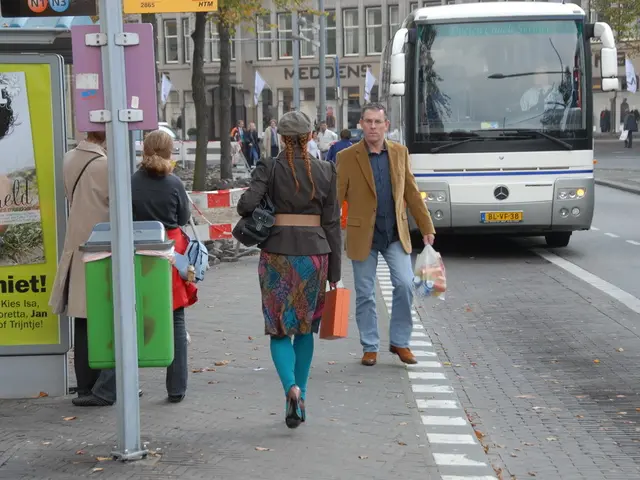Boom in Medical Care Centers in Saxony-Anhalt: Critics Point to Privatization Issues
Expansion of Medical Facilities in Saxony-Anhalt underway - Expanded Health Facilities in Saxony-Anhalt
In Saxony-Anhalt, the number of Medical Care Centers (MVZ) has skyrocketed in the last few years. While there were 74 facilities in 2019, the count reached 111 by the end of 2024, as per a report from the state government in response to a query by the state parliamentarian Nicole Anger (Left). The maximum MVZs are found in Halle (23), Magdeburg (19), the Harz district (12), and the Burgenlandkreis (11).
Anger raises concerns over the escalating number of private Medical Care Centers. With an increase in profit-driven providers, she argues, economic interests overshadow medical necessities. This is clear in the focus on high-profit specialties like surgery, orthopedics, radiology, and dentistry at the expense of primary care.
Altmark: A Health Crisis
"The situation in the Altmarkkreis Salzwedel is dire, with a significant shortage of both MVZ and sustainable hospital infrastructure. Access to reliable medical care in the north of the state has been precarious for quite some time," said Anger. The state must step in and address the shortage. The Left advocates for the growth of community-oriented and municipal Medical Care Centers.
Currently, there isn't a single MVZ in Saxony-Anhalt under municipal ownership. "The state government is unaware of any municipality actively pursuing founding intentions," the report states. No funds have been allocated in the state budget for the promotion and support of municipal MVZs.
Unlike a typical doctor's practice, MVZs function with an organizational separation between ownership and medical treatment. Doctors are usually employed as staff members. According to the Federal Ministry of Health, MVZs can operate as interdisciplinary or physician group facilities.
Insights:
- In Germany, strategies such as the "rural doctor quota" aim to address healthcare shortages in rural areas, which may inadvertently foster growth in community-oriented and municipal Medical Care Centers[1].
- The European Union emphasizes investment in resilient and accessible public health systems. Its long-term budget plans include a focus on prevention, preparedness, and equitable access to medical care, aligning with the strengthening of community and municipal health services[2].
- Regional cooperation projects under programs like Interreg Europe promote the sharing of good policy practices across sectors, which may encompass improvements in healthcare systems[4].
- Initiatives focussed on environmental and public health issues in Saxony-Anhalt and neighboring regions indicate a growing connection between health-related infrastructure development and community and environmental resilience, which could positively affect municipal healthcare capacity indirectly[5].
With no explicit policies for municipal MVZs, staying informed about regional health ministry publications or local government sources is essential for precise and up-to-date information.
- The Left in Saxony-Anhalt is advocating for the growth of community-oriented and municipal Medical Care Centers (MVZ), aiming to address the current health crisis in the Altmarkkreis Salzwedel.
- At present, there are no municipal-owned MVZs in Saxony-Anhalt, and no funds have been allocated in the state budget for the promotion and support of such facilities.
- In the context of rising concerns over the privatization of medical care and the growing number of profit-driven providers, vocational training programs in the health-and-wellness sector could play a crucial role in creating a well-rounded workforce equipped to handle diverse medical-conditions.
- The European Union's long-term budget plans prioritize investments in resilient and accessible public health systems and advocate for prevention, preparedness, and equitable access to medical care, aligning with the strengthening of community and municipal health services.
- Regional cooperation projects like Interreg Europe promote the sharing of good policy practices, potentially encompassing improvements in healthcare systems and indirectly boosting municipal healthcare capacity.
- Up-to-date information on regional health ministry publications or local government sources is essential for the development and implementation of effective policies regarding municipal MVZs, such as those related to policy-and-legislation, politics, science, and general-news.








